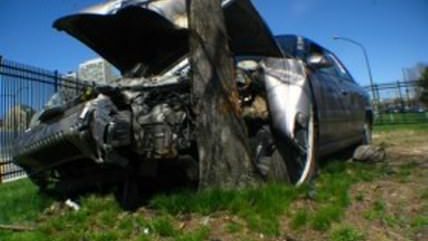Auto-Safety Bureaucrats Want To Enrich Themselves Over the GM Recall Tragedy
Lawmakers are falling for NHTSA's line that it is too poor to keep drivers safe

When a private company screws up, it takes responsibility. But when a government agency screws up, it deserves a raise. That's the lesson from last week's Congressional hearings investigating the recall of General Motors' vehicles whose faulty ignition is linked to 13 deaths and 31 crashes.
Both GM CEO Mary Barra and National Highway Traffic Safety Administration chief David Friedman testified before Congress. But their postures were a study in contrast: Barra issued a contrite mea culpa and pledged to make amends. Friedman, however, claimed that his agency was too overworked to provide effective oversight of the auto industry.
Trying to identify the common cause among millions of vehicles involved in auto accidents every year is never an easy forensic exercise. But from what congressional investigators have so far pieced together of a complex chronology, it seems both GM and NHTSA missed some pretty big red flags.
GM, on its end, approved an ignition switch that didn't meet its own torque specifications. Thus, its key would slip from the "run" to the "off" position if a driver's knee bumped into it, potentially turning off a moving vehicle and disabling its air bag. A GM engineer flagged the problem before the 2005 launch of Cobalt. But his peers didn't think this posed a major problem because the car could still be steered to safety. They installed the switch in more than two million vehicles in seven more models.
Further, as reports of accidents involving non-deploying airbags started trickling in, GM couldn't find the underlying connection. It twice considered the possibility that the faulty ignition might be involved, but dismissed it for want of evidence.
Meanwhile, NHTSA investigated 29 customer reports involving four fatal crashes in 2007. But it opted not to open a formal probe even though its own Defects Assessment Division chief perceived "a pattern of non-deployments in these vehicles that does not exist in their peers."
Clearly, GM and NHTSA took turns sleeping at the wheel. But GM, now that Uncle Sam has returned it to private ownership, has finally woken up while NHTSA dreams on.
Barra, GM's new CEO, told lawmakers that there is no explanation for GM's inaction. She pledged to reform the company's culture that avoids delivering bad news to top executives.
Talk is cheap, of course. But what isn't, notes Center for Auto Research's Sean McAlinden, is that GM will almost certainly forego the liability shield it received during bankruptcy and cough up billions of dollars in settlements to avoid bad publicity. The shield absolves it of liability for pre-bankruptcy incidents.
If GM will have to put its money where its mouth is, NHTSA is putting its mouth where the money is.
Friedman pleaded poverty before lawmakers. "NHTSA is not a large agency," he insisted. There are 280 million registered vehicles in the country. But it has a staff of only 591 employees, many of whom end up "often working nights and weekends" to "protect consumers."
But McAlinden notes that doubling or tripling NHTSA's $800 million budget won't make any difference in highway safety. Nor will more disclosure by automakers, another Friedman demand.
Notwithstanding the GM tragedy, defective cars are responsible for very few accidents. The big culprit is driver error, says McAlinden. And the most effective way of dealing with that is improving vehicular safety. Indeed, features such as air bags and seat belts have contributed to cutting driving fatalities from 26 per 100,000 people in 1965 to 10 now. To the extent that a bigger NHTSA would force carmakers to divert resources from making actual safety improvements to dealing with more red tape, it might make matters worse.
That, however, is not stopping Democratic—and even some Republican—lawmakers.
The 1970 TREAD Act passed in the wake the Ford Firestone debacle required carmakers to file quarterly early warning reports giving NHTSA copious details of accidents involving injury or death. Now Rep. Henry Waxman of California and Sen. Edward Markey of Massachusetts are reviving a bill that would require the auto industry to file an early, early warning report with even more information. (They're obviously not familiar with the concept of TMI.)
Worse, they want to assess a fee on every new vehicle sold to supplement NHTSA's budget, a direct transfer of money from the pockets of car buyers to those of federal bureaucrats.
GM is being forced to recall its defective cars. But who'll recall NHTSA's defective bureaucrats?
This column was originally published in the Washington Examiner


Show Comments (13)